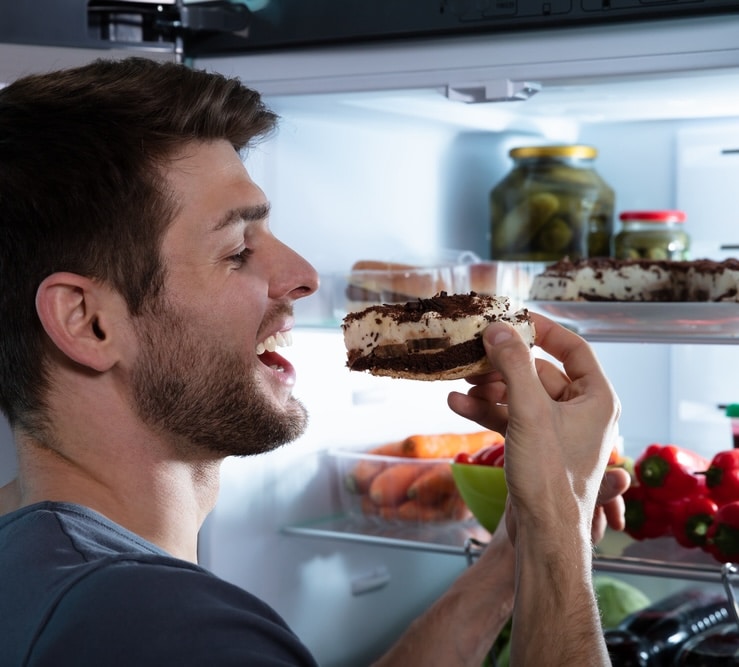“Party drugs” or “club drugs” are terms that describe the recreational drugs often found in social, club, or party settings. These drugs are used to enhance the experience of social events, parties, concerts, and other gatherings. They’re often associated with teenagers or college students who are experimenting with substances as they enter adulthood, but anyone can use them.
Party drugs have long been glamorized in popular culture despite many having addictive and dangerous qualities. Some party drugs, like marijuana, pose a minimal risk for overdose and addiction. Others, like cocaine, are very problematic. Understanding what drugs are used recreationally and what their effects are can help keep you safe.
Is club drug abuse causing problems in your life or the life of a loved one? It’s time to contact the team at Vogue Recovery Center to learn more about getting help. Drug abuse is a serious problem, and addiction treatment is a solution that can help. The professionals at Vogue Recovery Center can help you make positive choices in the future, while still having fun.
Why Do People Use Party Drugs?
Everyone has a different reason for using drugs. Some use them in social settings. Others use them to escape from negative aspects of their lives. “Why party drugs?” is a complex question that may have a different answer for everyone.
Here are some of the most common reasons people choose to take party drugs:
- Enhanced social experience: Party drugs are often used to enhance the experience of social gatherings of all kinds. They can lead to increased energy, heightened emotions, and feeling connected to other people.
- Increased pleasure: Many party drugs, such as MDMA (ecstasy), can trigger the release of neurotransmitters like serotonin and dopamine, leading to feelings of euphoria, pleasure, and emotional closeness.
- Escape from reality: Some people use party drugs to temporarily escape from stress, problems, or negative emotions. The altered states of consciousness induced by these substances can provide a break from everyday concerns.
- Curiosity and exploration: Some people are drawn to the novel and altered experiences that club drugs can offer. They’re motivated to explore different states of mind and perception.
- Peer pressure: Peer pressure and the desire to fit in with a group can influence club drug use.
- Stamina: Stimulant drugs can provide a surge of energy, allowing people to stay awake and active for longer periods of time.
- Perceived creativity: Some people believe LSD and psilocybin mushrooms can enhance their creativity or provide insights into their thoughts and emotions.

8+ Common Party Drugs
Each party drug has its own set of side effects, dangers, and comedowns. Some are often taken together and can be even more dangerous that way.
Most party drugs fall into one of four categories:
- Stimulants
- Inhalants
- Psychoactive drugs
- Depressants
Some drugs, like MDMA, may have qualities from multiple categories.
Stimulants
Stimulants are a class of psychoactive drugs that increase alertness, energy, and focus while elevating mood. They enhance the release and activity of certain neurotransmitters in your brain, particularly dopamine and norepinephrine. People use them in party, rave, or club situations because the side effects include more energy, improved mood, and feelings of euphoria.
Some common stimulants include:
Ecstasy (MDMA)
MDMA is a synthetic drug that has stimulant and hallucinogenic effects. It’s known for producing:
- Feelings of euphoria
- Increased empathy
- Heightened sensory perception
Effects of MDMA:
- Dehydration
- Overheating
- Anxiety
- Memory challenges
- Digestive issues
- And more
Street Names and Slang Terms for MDMA:
- Molly
- XTC
- Rolls or rolling
- X
- E-bomb
- Candy
Here are some signs that someone is under the influence of MDMA:
- Overly happy or in a great mood
- Increased energy
- Clenching the jaw
- Dilated pupils
- Sweating and feeling hot to the touch
- Nausea
Here are some signs of an MDMA overdose:
- Agitation
- Hyperthermia (excessive body temperature)
- High blood pressure
- Rapid heartbeat
- Confusion or disorientation
- Seizures
Learn more about MDMA here.
Cocaine
Cocaine is a powerful stimulant that can create feelings of energy, confidence, and euphoria. It’s often associated with party settings because of its stimulating effects, but it’s also highly addictive and harmful to your health.
Street Names and Slang Terms for Cocaine:
- Coke
- White
- Snow
- Blow
- Nose candy
- Bumps
Here are some signs that someone is under the influence of cocaine:
- Excessive energy
- Bloody nose
- Sniffing or blowing their nose
- Dilated pupils
- Decreased appetite
- Weight loss
- Financial problems
- Mood swings
Here are some signs of a cocaine overdose:
- Chest pain
- Difficulty breathing
- Rapid heartbeat
- High blood pressure
- Loss of consciousness
- Stroke
Learn more about cocaine here.
Amphetamines
Amphetamines, including drugs like Adderall and methamphetamine, are stimulants that can increase energy and focus. Methamphetamine in particular is a highly addictive and potent stimulant with serious health risks.
Street Names and Slang Terms for Amphetamines:
- Crystal
- Speed
- Bennies
- Amps
- Addies
- Beans
- Uppers
- Study buddies
Here are some signs that someone is under the influence of amphetamines:
- Excessive energy
- Extreme paranoia or anxiety
- Talking excessively
- Decreased appetite
- Increased heart rate
- Sweating
- Grinding their teeth or clenching their jaw
Here are some signs of an amphetamine overdose:
- Severe agitation
- Chest pain
- Psychosis
- Delirium
- Loss of consciousness
- Sweating
- Difficulty breathing
Learn more about Adderall here.
Learn more about meth here.
Inhalants
Inhalants are substances that produce chemical vapors that can be inhaled to induce a psychoactive, mind-altering effect. These substances are not typically intended for recreational use and can be dangerous and even lethal when abused. Inhalants are often household products or chemicals readily available to the public.
Common Inhalants:
- Solvents: Paint thinner, nail polish remover, gasoline, and correction fluid all vaporize at room temperature and can be inhaled.
- Aerosol sprays: Spray paint, air fresheners, deodorant sprays, and cooking sprays can be inhaled for their euphoric effects.
- Gas: Gases like nitrous oxide (laughing gas) used in medical and dental procedures, as well as butane and propane found in household items like lighters and camping fuel can be inhaled.
- Nitrites: Nitrites, such as amyl nitrite and isobutyl nitrite (commonly known as poppers), are a distinct class of inhalants that primarily affect blood pressure and are sometimes used recreationally.
Street Names and Slang Terms for Inhalants:
- Poppers
- Snappers
- Whippets
- Hippie crack
- Huff
Here are some signs that someone is under the influence of inhalants:
- Smelling like chemicals
- Stains or marks on clothing
- Changes in behavior
- Loss of motor function
- Finding empty chemical containers
Here are some signs of an inhalant overdose:
- Severe agitation
- Hallucinations
- Rapid heartbeat
- Seizures
- Loss of consciousness
- Difficulty breathing
Psychoactive Drugs
Psychoactive drugs are substances that affect the central nervous system and alter brain function, leading to changes in:
- Perception
- Mood
- Consciousness
- Cognition
- Behavior
These drugs can produce psychological and physiological effects, including altered sensory perception, feelings of euphoria or relaxation, enhanced sociability, and altered states of consciousness. This makes them attractive for party or club situations. They also carry a lower risk of drug overdose than other party drugs, but the altered state they put users in can itself be dangerous and lead to poor decision making and risky behavior.
Here are some popular psychoactive drugs:
LSD (Acid)
LSD is a hallucinogenic drug that can cause profound sensory distortions and alterations in perception. It’s not as commonly associated with party settings as some other drugs because of its intense and unpredictable effects.
Street Names and Slang Terms for LSD:
- Lucy
- Acid
- Doses
- L
Signs Someone is on LSD:
- Hallucinations
- Enhanced sensory perception
- Altered perceptions of time
- Impaired judgement
- Not eating very much
Cannabis
Marijuana is not a traditional party drug, but it’s often used in recreational settings and can have relaxing and mood-altering effects. While its legal status varies widely around the world, marijuana use is at an all-time high for adults ages 19 to 30 in the United States.
Slang Terms for Cannabis:
- Weed
- Green
- Ganja
- Herb
- Mary Jane
- Mids
- Dope
- Grass
- Pot
- Reefer
- Loud
Signs Someone Is on Cannabis:
- Increased hunger
- Red eyes
- Lethargy
- Improved mood
- Increased paranoia and anxiety
Learn more about marijuana here.

Mushrooms
Psilocybin mushrooms or “magic mushrooms” contain the psychoactive compound psilocybin. These mushrooms can induce hallucinations and altered perception experiences when ingested. While some people do use psilocybin mushrooms recreationally as psychedelic drugs, they are not traditional rave drugs like MDMA and cocaine.
Slang Terms for Mushrooms:
- Boomers
- Magic mushrooms
- Shrooms
Signs Someone Is on Mushrooms:
- Hallucinations
- Enhanced sensory perception
- Altered perceptions of time
- Impaired judgement
- Nausea
Depressants
Depressants have sedative or calming effects on the central nervous system. They slow down brain activity, reduce alertness, and can induce feelings of relaxation and drowsiness. Depressants can reduce inhibition during social situations and make it easier for people to relax and have a good time. Alcohol is a common depressant used in party or club situations.
Ketamine
Ketamine is an anesthetic that can induce hallucinogenic and dissociative effects. It’s sometimes used recreationally for mind-altering properties but it can lead to disorientation and impaired motor function.
Street Names and Slang Terms for Ketamine:
- Special K
- K-hole
- Kitty kat
- Ket
Here are some signs that someone is under the influence of ketamine:
- Loss of motor function
- Confusion
- Slurred speech
- Dissociation
- Rapid eye movements
Here are some signs of a ketamine overdose:
- Severe confusion
- Loss of consciousness (k-hole)
- Slow speech
- Shallow breathing
- Nausea
- Seizures
Learn more about ketamine here.
GHB
GHB (gamma-hydroxybutyric acid) is a central nervous system depressant that can induce feelings of relaxation and euphoria. It’s sometimes referred to as a “date rape” drug due to its association with incidents of sexual assault and impaired judgment.
A slang term for GHB is roofies.
Here are some signs that someone is under the influence of GHB:
- Relaxation
- Euphoria
- Slurred speech
- Amnesia
- Drowsiness
Alcohol
Alcohol is the most prevalent party or club drug. When you consume alcohol, it has a sedative effect on the brain and body, which leads to a range of drug effects associated with depressants. Alcohol can induce a feeling of relaxation and drowsiness, and it can lower inhibitions and lead to impaired judgment and decision-making.
Slang Terms for Alcohol:
- Booze
- Adult sodas
- Sauce
- Hooch
- Vino
- Bubbly
Here are some signs that someone is under the influence of alcohol:
- Smelling like alcohol
- Slurred speech
- Red eyes
- Impaired coordination
- Red face
- Decreased inhibition
Signs Someone Is Overdosing on Alcohol:
- Vomiting
- Loss of consciousness
- Slowed breathing
- Pale or blueish skin color
- Hyperthermia
- Irregular breathing
Learn more about alcohol here.
Substance Use Disorder Treatment at Vogue Recovery Center
Vogue Recovery Center understand that drug and alcohol abuse affect everyone differently. Party drugs may seem harmless and part of the fun, but there are many risks associated with using them. Mixing drugs and alcohol, in particular, is a dangerous party practice that can lead to addiction and even overdose if you don’t get the help you need.
Vogue Recovery Center offers treatment programs for party drugs that can help you turn your life around. Our unique levels of care are designed to establish a personalized approach to recovery. They include:
- Medical detox: The first step in recovery is ridding the body of all drugs or alcohol. Our detox team can help you remove dangerous party drugs from your system and manage withdrawal symptoms safely and effectively. Our detox programs take place at our comfortable, home-like treatment center.
- Residential treatment: Our residential program for addiction recovery is often the next step after medical detox. The many drug addiction therapies offered during inpatient treatment help heal the body, mind, and soul. Rehab teaches valuable coping mechanisms and tools that can be used to stay sober long after treatment is over.
- Partial hospitalization program (PHP): A PHP is a form of outpatient treatment for a substance use disorder. It involves spending up to five days per week at our treatment center. The rest of the time, you are living at your home or in a sober living home.
- Intensive outpatient program (IOP): Another form of outpatient rehab, an IOP only involves between 9 and 15 hours per week of treatment. The goal is to ease the transition back to everyday life.
- Outpatient treatment: Outpatient substance abuse treatment offers the most flexibility in recovery. It involves attending treatment only once or twice per week. You are free to live at home, attend school or work, and go about life as you normally would while applying the coping mechanisms you’ve learned in addiction treatment.
Vogue Recovery Center is your source for drug addiction treatment that’s rooted in compassion and dignity. Our alcohol and drug rehab programs are integrated with mental health treatment for a path to recovery that offers a real chance at getting better. Contact our admissions team today and verify your insurance. You can also learn more about the effects of party drugs and why you should get help.
References:

Evan Gove

Latest posts by Evan Gove (see all)
- Dangers of Mixing Prozac and Alcohol - September 10, 2024
- Is Prednisone Addictive? - September 9, 2024


